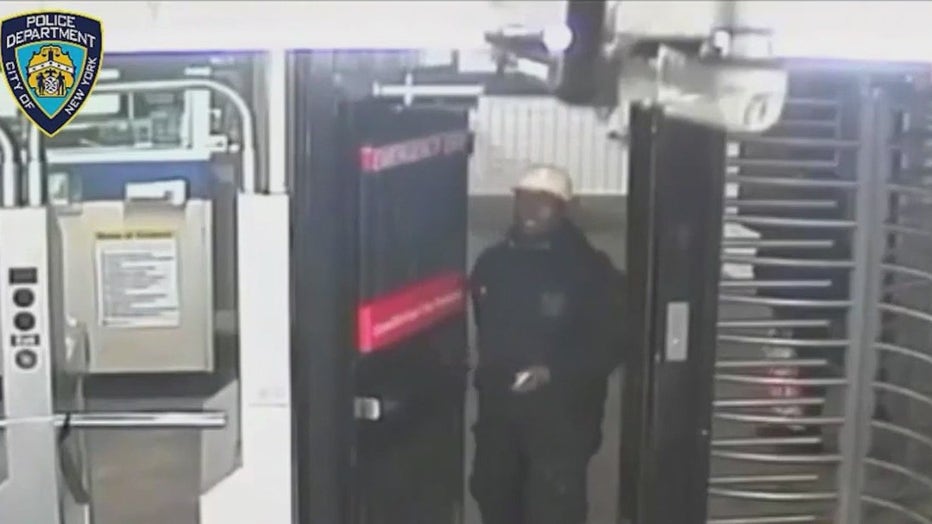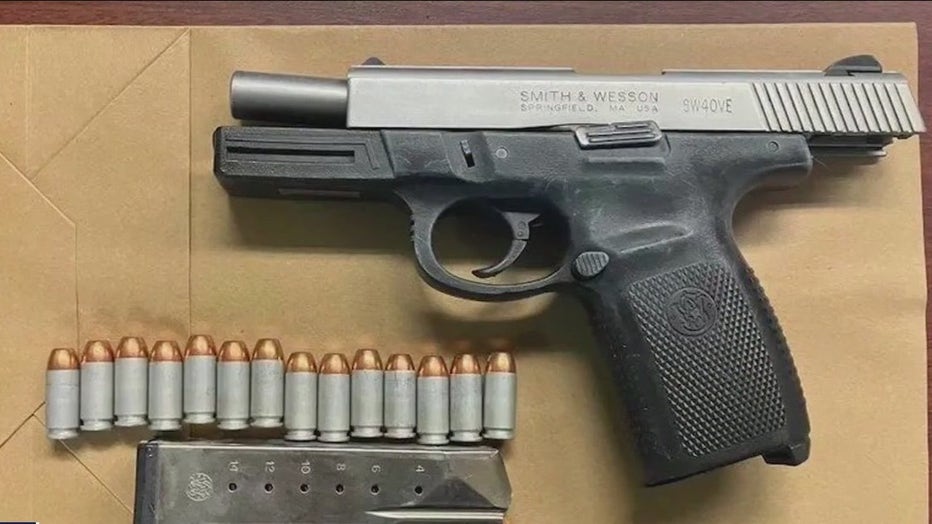NYC subway cops targeting fare evaders to prevent violent crime
Riding along with NYPD Transit Response team
The NYPD says that theft of services, such as not paying the subway fare, and other quality of life crimes can lead to bigger and more violent crimes in the subway system. Using last week's subway shooting in Brooklyn as an example, the NYPD is looking to remove more weapons from the subway system.
NEW YORK - Theft of service, such as not paying the subway fare, and other quality-of-life crimes in the transit system can lead to bigger and more violent crimes underground, according to the NYPD.
After last week’s subway shooting in Brooklyn where the perpetrator did not pay his fare, the police department says it’s determined to stop subway crime where it begins – the turnstile.
FOX 5 NY's camera tagged along with the NYPD's Transit Response Team for a second time, but this operation exclusively involved plainclothes officers. The goal remained the same: target transit recidivists – those who repeatedly commit crimes in the transit system after not paying to get in.
RELATED: Inside the NYPD crackdown on subway fare evaders in search of violent criminals
To many, jumping the turnstile looks like a minor offense, and it is, but police say someone not paying their share to ride the subway can lead to a violent or deadly outcome for commuters. Police hold up last Thursday's shooting aboard an A train in downtown Brooklyn as evidence.
Surveillance video showed the instigator of the incident, who brought a gun onboard, skipping the $2.90 fare by walking right through the emergency exit before the chaos began.

The accused gunman in a shooting aboard a NYC subway train on March 15.
"If you want to keep the system safe, the first thing you got to do is keep bad people out the system who don't pay," said DCPI Deputy Commissioner Tarik Sheppard.
This most recent operation was in Times Square with about 10 plainclothes officers spread throughout the station.
So far this year, the NYPD says 17 guns have been removed from the subway system thanks to operations just like these by catching fare evaders in the act with the plan to stop any further crimes from playing out.
After a brief search of the person's name, the person who did not pay may either qualify for a summons and be on their way. Or depending on their criminal history, they could get arrested on the spot.
The team issued 10 summonses and made three arrests on Tuesday afternoon in Times Square and all three people arrested had warrants.
After the first arrest of the night, police recovered a stolen diamond watch from a man who entered the subway through the emergency exit. He was also found with a MacBook. Police linked these items to Facebook Marketplace transactions gone bad. On top of the theft of service arrest, police were able to close out one open case for robbery and another case for possession of stolen property.

Sgt. Fernando Cordero of the NYPD Transit Response Team says plainclothes officers can also uncover knives, firearms, and drugs.
On the same night in the Bronx, officers found a man smoking in the Fordham Road subway station which led them to an illegal firearm.

When they confronted him, they realized he was wanted for domestic assault and was carrying the gun. Although he wasn't caught beating the fare, he was still committing a quality-of-life crime.
"It's been a practice of the NYPD for decades that by interrupting minor offenses whether it's fare beating or smoking in a subway or any other illegal acts, especially in public transportation, we will have the opportunity to stop people, correct their behavior, run them for warrants, [and] run them for any other open issues," said NYPD Inspector Jonathan Bobin.
Then, if the circumstances call for it, the suspect will be taken in for processing.
Police say it's a small group of the same criminals who are committing crimes underground.
RELATED: Inside the NYPD crackdown on subway fare evaders in search of violent criminals
The NYPD says 38 people were arrested last year for assaulting MTA employees. All of those 38 people had a combined 1,126 career arrests.
But many times after someone hasn't paid, the officers use discretion after hearing the person's story. Some may get a warning and others may be stopped right at the gate or walked back to the gate and redirected to pay. They say it's about changing their behavior and educating them on what's not allowed because it's not always about locking people up.
"We're from the city," Sgt. Cordero added. "We're people just like everybody else and the main goal is to make sure that everybody's safe, they feel safe when they come to the subway station, and we're out here 24/7 to guarantee that safety."
Their goal isn’t to punish those who can't afford the fare but to use judgment to stop lawlessness at the turnstile.


